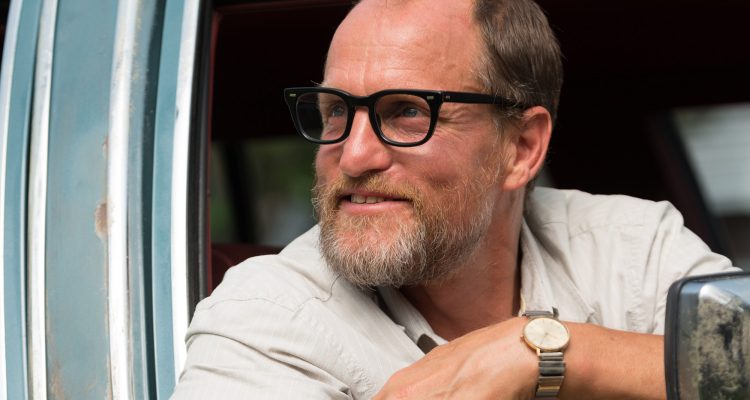Cartoonist Dan Clowes is responsible for some of the best graphic novels and short comics stories of the past 25 years, two of which — “Ghost World” and “Art School Confidential” — ave been made into movies. But it’s his book “Wilson” that best represents his work as a whole. A character sketch about a chatty, reactionary misanthrope, “Wilson” is structured as a series of one-page comic strips, drawn in a variety of styles, which combine to tell a loose story. Mostly, it’s a deep dive into the life of a heavily opinionated, mildly delusional man, who thinks of himself as more plugged-in to real life than all the cell-phone-addicted masses, even though most of his “conversations” with real people consist of him ranting about the modern world.
What makes Wilson so distinctly Clowes-ian is that even as he expresses some of the artist’s own gripes about modernity, he’s also illustrating Clowes’ keen self-awareness about how off-putting a guy like this can be. In director Craig Johnson’s movie version of “Wilson” (penned by Clowes), Woody Harrelson puts a somewhat different spin on the character, capturing his cranky essence but also making him more charismatic, and even likable. Harrelson’s version makes more sense as the protagonist of a long-form narrative. He comes across more like someone who could inspire others to go along with some crazy scheme. But in the process of softening Wilson the man, “Wilson” the movie loses a lot of what was unique about “Wilson” the book.
The plots of both are roughly the same. After establishing Wilson as the kind of eccentric who’ll sit next to strangers and just start talking — even though there are plenty of empty seats around — the film sends him on a road trip to take care of his dying father. The experience sends him on another journey down memory lane, and soon he’s tracking down his ex-wife Pippi (Laura Dern), and finding out that after she left him she gave birth to his daughter Claire, and put her up for adoption. He recruits Pippi to join him in tracking down the now-17-year-old Claire, a heavyset high school goth (played by Isabella Amara) who’s so miserable with her own life that she lets her biological parents crash it — although she doesn’t tell her adoptive folks. Hijinks ensue, including a disastrous trip to visit Pippi’s conservative suburbanite sister (Cheryl Hines).
Clowes and Johnson — the latter of whom is best-known for his 2014 dramedy “The Skeleton Twins” — struggle with how to turn the graphic novel’s series of loosely connected incidents into a cohesive film. They largely jettison the anecdotal nature of the original, keeping only a few of the vignettes of Wilson getting outraged over nothing or unfairly harassing the people he meets everyday. But a certain amount of “and then this happened” is baked into the arc of “Wilson.” The lack of tangents in the movie makes it a little jarring when the action suddenly lurches ahead to another location — or even jumps forward months or years.
On its own merits — divorced from the source—“Wilson” is just fine. It’s a fairly standard meandering indie comedy, where character quirks and a general underdog spirit keep everything just removed enough from reality to be non-threatening. And Harrelson appears to be having a blast in a role that he really does make his own, playing Wilson as a mostly benign weirdo who has a certain zestful spirit, and may even be right about the alienation of today’s wired-up, over-connected society. But it’s disappointing that the movie never risks making audiences feel uncomfortable, nor reaches for something penetratingly insightful, the way Clowes’ comics do. This “Wilson” is sweet and pleasant and occasionally riotously funny. But it’s still the simplified version of a much more complicated work of art. [B-]
Click here for our complete coverage from the 2017 Sundance Film Festival

